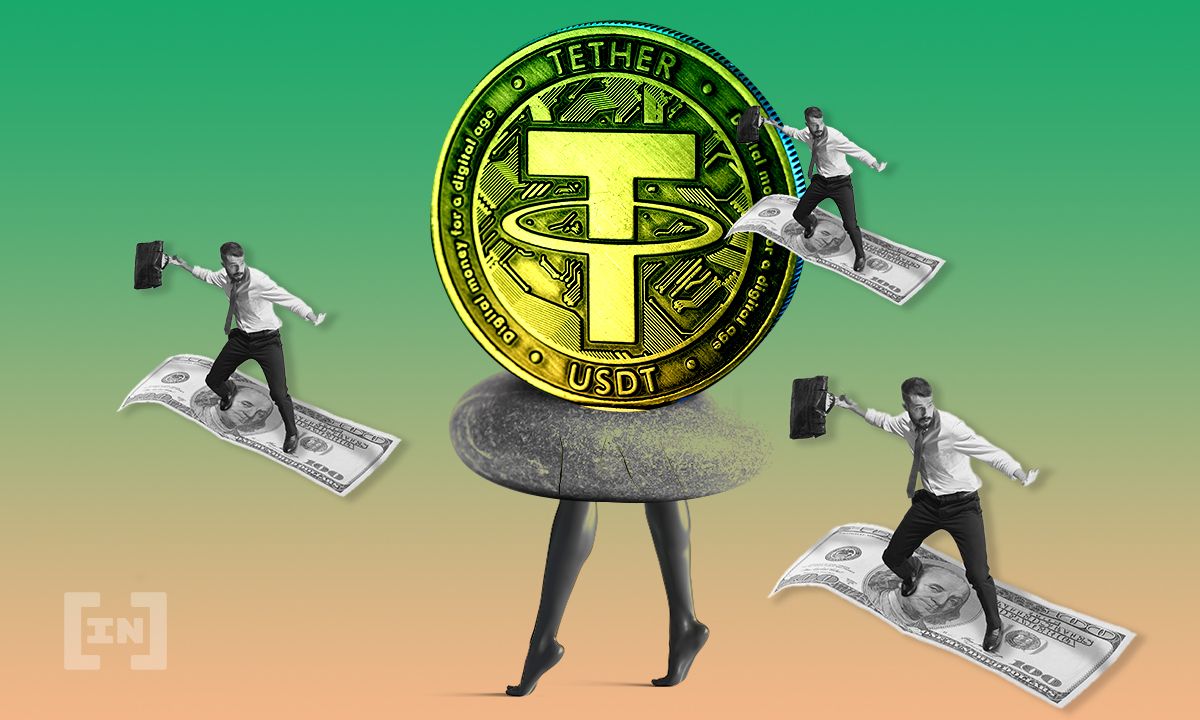Tether, the world’s largest stablecoin with $68 billion in assets, will undertake a full audit with a top 12 accounting firm in order to improve transparency of its USDT reserves.
The move comes as USDT has steadily lost market share following a series of redemptions over the past few weeks, caused in part by weakening confidence after the collapse of the Terra blockchain last month.
Tether, issuers of the USDT stablecoin, is currently working with a Cayman-based accounting firm called MHA. The outfit has so far only produced attestations – a snapshot of a company’s balance sheet on a given date.
In an interview with Euromoney, chief technology officer Paolo Ardoino said Tether was now working on providing a comprehensive audit, which, unlike attestations, would help give a complete picture of the company’s financial position over a specific period.
“I think its one of the top 12, so not that bad. The big four are a bit more cautious about providing a full audit when the rules are not clear,” Ardoino said, pointing out that other rival stablecoins were still lacking in this respect.
Tether pressured to disclose USDT reserves
Tether has been under pressure to be more transparent about the reserves backing USDT, an asset pegged one-to-one to the U.S. dollar. Advocates argue that disclosure would help investors better understand potential risks and determine how auditors are interacting with the company.
While Tether has provided some clarity on its bankers, it has remained coy about its USDT reserves citing confidentiality. Ardoino said crypto assets accounted for a small proportion of Tether’s reserves.
He also said Tether cut its holdings of commercial paper from $40 billion to $15 billion over the past eight months, soothing market concerns about a risk in the firm’s portfolio. Ardoino stated some of its reserves have been transferred into securities that mature within three months.
Tether is providing regular updates on its reserves and operations to the New York Attorney General Letitia James, as part of a deal on an $18.5 million settlement and a ban on trading in Feb last year, Euromoney reported.
Ardoino says USDT peg never practically broken
Stablecoins have come under increased scrutiny in the weeks following the high-profile collapse of the Terra blockchain in May. Amid the chaos, Tether’s USDT temporarily lost its parity to the dollar, dropping to $0.95, as investors exited the stablecoin in panic.
Ardoino claimed that, practically, USDT never de-pegged after the company paid users the equivalent of $1 to redeem their USDT holdings. Using the example of the 2008 bank run on Washington Mutual to explain the recent chaos, Ardoino said:
“We were put under a stress test that not even banks can succeed, and we passed with flying colors. We showed that in the worst case scenario, when there was Terra crumbling, the entire crypto market crumbling, we got a tonne of request of withdrawals and we honored them within minutes”.
He added: “Tether redeemed 10% of its assets in 48 hours and without the blink of an eye, we could have done much more than that. In total, in 10 days it was around $11 billion or 13% of our assets and still no problems.”
Tether’s total market capitalization has tumbled by more than $10 billion since early May, according to Coinmarketcap.
Disclaimer
In adherence to the Trust Project guidelines, BeInCrypto is committed to unbiased, transparent reporting. This news article aims to provide accurate, timely information. However, readers are advised to verify facts independently and consult with a professional before making any decisions based on this content. Please note that our Terms and Conditions, Privacy Policy, and Disclaimers have been updated.

